- Home
- Michael Korda
Hero Page 23
Hero Read online
Page 23
Lawrence did not learn until early in June that the excavation in Carchemish was to go on until August, though perhaps without a second season. By now the level of the Euphrates was falling, exposing sandbanks and islands, and the area was experiencing a plague of locusts, one of which he dried and sent to his youngest brother, Arnie. There was also an invasion of vast numbers of fleas and biting sand flies as the weather warmed. The constant company of Thompson seems to have been getting on his nerves—"any little thing upsets [him],” Lawrence remarked.
Lawrence was making something of a name for himself by producing miracle cures with such things as ammonia and Seidlitz powders, a popular nineteenth-century remedy for stomach distress which fizzed and bubbled furiously when added to water, and which terrified the Arabs, who had never seen such a thing. One of the two “water boys” was persuaded to take half a glass, and this is the first mention in Lawrence’s letters of his name: Dahoum.
Dahoum means “darkness,” and may have been an ironic nickname, in the same spirit that the friends of a very short man might call him “Lofty,” or a very tall man “Tiny,” since Dahoum seems in fact to have had rather light skin for a boy of mixed Hittite and Arab ancestry (his family actually lived on the Carchemish mound). He has been described as “beautifully built and remarkably handsome,” but in photographs taken of him by Lawrence (and in a pencil sketch made of him by Francis Dodd, when Lawrence brought Dahoum and Sheikh Hamoudi home to Oxford in 1913) he looks not so much beautiful—his face is a little fleshy for that, very much like the faces on the Hittite bas-reliefs that Lawrence was uncovering—as good-humored, intelligent, and amazingly self-possessed for such a young man. It is possible that Dahoum’s real name may have been Salim Ahmed—he was also referred to at least once as Sheikh Ahmed too, but that may have been one of Lawrence’s private jokes. In any event, Dahoum, who was fourteen when Lawrence met him, would play a role of increasing importance in Lawrence’s life, and becameone of the many bonds which would tie his life firmly to the Middle East, in peace and in war, over the next seven years.
As the heat increased, Lawrence took to sleeping on the mound, overlooking the Euphrates, and getting up at sunrise to help Sheikh Hamoudi pick the men, and deal with the infinite problems of blood feuds and rivalry between those who shoveled, and thought of themselves as an elite, and those who merely carried baskets of dirt and rocks. Daily, Lawrence was learning not only colloquial Arabic, but the complexities of Arab social relationships, and the dangerous consequences of getting these wrong, or offending Arabs’ sensitivity.
On June 24, he wrote home to say that the British Museum, disappointed in the results so far, had ordered work shut down in two weeks, and that he intended to take a walking tour of about a month. He added a warning, “Anxiety is absurd.” If anything happened to him, his family would hear about it in time. Dahoum had apparently been promoted from one of the two water boys to “the donkey boy,” and Lawrence described him as “an interesting character,” who could “read a few words (the only man in the district except the liquorice-king) of Arabic, and altogether has more intelligence than the rank-and-file.” Dahoum, he mentions, had hopes of going to school in Aleppo, and Lawrence intended to keep an eye on him. Lawrence deplores the intrusion of foreign influence, particularly French and American, on the Arabs, and adds: “The foreigners come out here always to teach, whereas they had much better learn.” In a postscript he adds that he has now decided to spend the winter walking through Syria (his new pair of boots has arrived), perhaps settling in one of the villages near Jerablus for a time, possibly in the house of Dahoum’s father.
This information may not have alarmed the Lawrence family, but it should have. There was no more talk of working under Petrie in Egypt, let alone any mention of Richards and his printing press. Lawrence and Thompson were to go off and briefly examine another Hittite mound at Tell Ahmar, at Hogarth’s request, and after that Lawrence proposed to go onby himself, walking to those crusader castles he had not already seen. On top of his next letter, written on July 29, from Jerablus, his mother wrote: “This letter was written when he was almost dying from dysentery.”
Lawrence’s letter home gives no hint of this—on the contrary, he writes, “I am very well, and en route now for Aleppo,” and describes his itinerary so far. The letter is unusually short for him, however—surely a bad sign—and in fact, on the day before, he wrote in his diary, “Cannot possibly continue to tramp in this condition,” and collapsed in the house of Sheikh Hamoudi. Hamoudi looked after Lawrence as best he could—though not without a note from Lawrence absolving him of responsibility in case his guest died. This was intended to protect Hamoudi from the Turkish authorities, who would certainly have punished him if a foreigner had died in his care.
Lawrence’s mother was not wrong—he came very close to dying, and owed his life to the patient and determined care of Sheikh Hamoudi and the donkey boy Dahoum. By the first days of August Lawrence was beginning to recover, though he was still very weak, and sensibly concluded that his walking tour could not be completed, and that he would have to go home. His illness in 1911 set a pattern that would persist for the rest of Lawrence’s life—he ignored wounds, boils, abrasions, infections, broken bones, and pain; paid no attention to the precautions about food and drinking water that almost all Europeans living or traveling in the East made sure to take; suffered through repeated bouts of at least two strains of malaria; and kept going as long as he could even when dysentery brought him to the point of fainting. He lived at some point beyond mere stoicism, and behaved as if he were indestructible—one of the essential attributes of a hero.
As Lawrence slowly regained his strength, he used the time to encourage Dahoum’s “efforts to educate himself,” and wrote to his friend Fareedeh el Akle at the American mission school in Jebail for simple books on Arab history for his pupil—if possible, books untainted by western influence or thinking. In the meantime he practiced his Arabic on Dahoum; and with a curious habit of anticipating the future, whichcreeps into his letters and diaries, he wrote to Hogarth that “learning the strongly-dialectical Arabic of the villages would be good as a disguise” while traveling.
While Lawrence lay ill in Jerablus, Hogarth was busy in London, deftly guiding the British Museum toward supporting a new season of digging at Carchemish, since the Turkish government was unlikely to allow the British to start excavation on another Hittite site before this one had been fully exploited. Apparently impressed by Hogarth’s letters to the Times about Carchemish, Lawrence began what was to become a lifelong habit of writing to the editor of the Times about matters that displeased or concerned him. He broke into public print for the first time with a savagely Swiftian attack on the way the Turkish government was allowing important antiquities and archaeological sites to be torn down by developers. “Sir,” he began: “Everyone who has watched the wonderful strides that civilization is making in the hands of the Young Turks will know of their continued efforts to clear from the country all signs of the evil of the past.” Remarking on a plan to destroy the great castle of Aleppo for the benefit of “Levantine financiers,” and on plans to do the same at Urfa and Biridjik, he went on to attack the Germans who were building the Berlin-Baghdad railway, and predicted that “the [Hittite] ruins of Carchemish are to provide materials for the approaches to a new iron girder bridge over the Euphrates,” signing himself, “Yours, &c., Traveller.” The Times, always quick to publish even the tamest of letters—and this one was anything but tame—under a provocative headline, published it on August 9, below the headline “Vandalism in Upper Syria and Mesopotamia,” predictably eliciting an infuriated reaction from the German consul in Aleppo. Taunting the Turks and attacking the Germans for their activities in the Ottoman Empire was to become a habit with Lawrence in the years remaining before the outbreak of war.
On August 3 Lawrence began his trip home. He arrived in Beirut on August 8, and to his great delight met the poet James Elroy Flecker and Flecker�
��s Greek wife, Hellé, who were to become his close friends over the next few years. Flecker was the acting British vice-consul in Beirut;he had attended Trinity College, Oxford, where he had been, or felt he was, a misfit, although he had been a contemporary, friend, and rival of the poet Rupert Brooke. John Maynard Keynes, who had met Flecker while visiting friends in Oxford, wrote about him to Lytton Strachey: “I am not enthusiastic about Flecker,—semi-foreign, with a steady languid flow and, I am told, an equally steady production of plays and poems which are just not bad.” There may be a trace of what might now be called gay bitchery in this comment, as well as a degree of genteel anti-Semitism—both Keynes and Strachey were members of a rather refined group of extremely bright, ambitious young homosexuals. Flecker labored under numerous erotic and familial difficulties, none of which he was able to reconcile or resolve: he had been educated at a school where his father was the headmaster, and as if that were not difficult enough, his father was a ferociously Low Church, evangelical Protestant who was half Jewish. Flecker’s swarthy looks made his intense Englishness seem adopted rather than natural, and he rebelled against his parents in every way, running up reckless debts, and indulging himself by writing extravagantly garish poetry and striking exaggerated aesthetic poses that alarmed them. Only by dint of a heroic, last-ditch effort was Flecker able to squeak through the examination into the consular service (a large step down from the more socially and intellectually distinguished diplomatic service). In the process, he did nothing to please either his parents or the Foreign Office by falling in love with a forceful young Greek woman, who braved the issue of his ill health—he was already suffering from tuberculosis—to marry him. More or less exiled to a subordinate post in Beirut, Flecker paid more attention to his career as a poet than to his consular duties.
In Lawrence he found not only a friend but an admirer. Lawrence was deeply impressed by Flecker’s poetry,* the best of which was written after Flecker was exposed to the color and drama of eastern life, and felt as much at home in the Fleckers’ apartment in Beirut as he would a fewyears later in that of Ronald Storrs, in Cairo. Indeed Lawrence photographed Flecker elaborately dressed in a Bedouin robe and headdress—though despite his dark complexion and an inherent love of dressing up in costume, Flecker does not look nearly as comfortable in Arab clothing as Lawrence. Flecker is also a good example of one of Lawrence’s most endearing characteristics: once he became your friend he was your friend for life, and once he admired your work he was a supporter of it forever.
It is a measure of how ill Lawrence had been that he returned to England via Marseille and went on from there by train to Oxford—this route was much quicker (and more expensive) than traveling by sea from Beirut to England. At home, he recuperated under the watchful eye of Sarah, and faced the difficulties so common to talented young men of his age. In his case it was not so much that he couldn’t decide what to do with himself as that he had too many choices and self-imposed obligations. Hogarth, he learned, had secured the funds for a second season of excavation at Carchemish; Flinders Petrie had accepted him for a stint of tomb digging in Egypt; Vyvyan Richards was still eager to proceed with the printing press scheme; Jesus College expected to hear more about Lawrence’s BLitt thesis on medieval pottery; and Lawrence himself was deeply mired in his plan to bring out his expanded BA thesis on castles and fortifications as a book, a project that was doomed for the moment by the number of his drawings and photographs that he deemed essential to the text.
Lawrence’s photograph of James Elroy Flecker.
Although the doctors were strongly against Lawrence’s return to the Middle East, that of course did not deter him. Thompson, he learned, had declined to return unless his wife could accompany him, a suggestion that horrified everyone; and Hogarth replaced him with a young archaeologist, Charles Leonard Woolley, an assistant keeper of the Ashmolean Museum. Woolley would go on to a long and distinguished career; he would not only be knighted but serve as the inspiration for Agatha Christie’s Murder in Mesopotamia. Lawrence and Woolley became and remained friends—Woolley was primarily interested in the discovery of big buildings and monuments, while Lawrence worked with the men, honed his knowledge of Arabic, and took care of the pottery finds and the photography.
Lawrence defied the doctors and set out again for Jerablus at the end of November, to report on the rumor that the Germans planned to build their railway right through the mound at Carchemish. When this proved to be untrue (the railway would pass uncomfortably near it, but not through it), he journeyed on to Egypt to join Petrie’s current dig at Kafr Ammar, on the Nile south of Cairo, but not without enduring a terrifying carriage accident on Christmas Day, when the driver toppled the carriage and the horses off a bridge and into a stream. In a letter home on January 2 he comments darkly (and correctly) about conditions in the Ottoman Empire: “Great rumors of war and annexation:—not to be believed yet, but such a smash is coming out here.”
He wrote next from Cairo, giving his family his new address in Kafr Ammar in Arabic script, so they could copy it out and add it to each envelope. The actual digging disgusted him, and prompted one of his darker descriptive passages: “It is a strange sight to see the men [dragging] out amummy, not glorious in bright wrappings, but dark brown, fibrous, visibly rotting—and then the thing begins to come to pieces, and the men tear off its head, and bare the skull, and the vertebrae drop out, and the ribs, and legs and perhaps only one poor amulet is the result…. I’m no body snatcher, and we have a pile of skulls that would do credit to a follower of Genghis Khan.” He found the Nile sluggish, and the brown sails of the boats on it depressing to look at.
A week later Flinders Petrie* and his wife arrived, and it is hard not to guess that the uncongenial nature of the work preconditioned Lawrence to dislike her. “I don’t like Mrs. Petrie,” he wrote home flatly after meeting her for the first time (this was unusual for Lawrence); as for Petrie, who was hugely dignified and full of himself, Lawrence seems to have displayed his dislike of tomb robbing by “taking the mickey” out of Petrie in small ways, perhaps not his most endearing trait. Lawrence turned up for digging in football shorts and a white Magdalen College Boat Club blazer, prompting Petrie to remark that they weren’t here to play cricket. As one of Lawrence’s biographers pointed out, the joke was on Petrie, who did not realize that cricket isn’t played in football shorts (not that Lawrence played either cricket or football). Also, and perhaps more woundingly, flaunting the Magdalen blazer may have been Lawrence’s way of reminding Petrie that unlike Lawrence he “was not an Oxonian, but merely Professor of Egyptology in the petit bourgeois University of London.” Petrie, whose long white beard made him rather resemble God the Father in Michelangelo’s ceiling fresco in the Sistine Chapel, may have been sharp enough to guess the intention of Lawrence’s choice of clothing, but the Petries nevertheless showed him a remarkable degree of kindness and courtesy during his time there, and Lawrence thawed toward them.
Over time, despite his dislike of digging up mummified bodies (and a general distaste for Egypt, both the people and the way they spoke Arabic), Lawrence came rather reluctantly to admire Petrie’s abilities. Petrie had discovered the first mention of Israel in Egyptian recorded history by deciphering the Merneptah stele, an accomplishment that won him international acclaim; and by linking the styles of pottery shards, he developed a new and more exact method of chronology for excavation sites, something from which Lawrence would benefit in his task of classifying Hittite pottery at Carchemish.
Petrie emphasized that all archaeological research “lies in the noting and comparison of the smallest details,” advice from which Lawrence could surely benefit, and with which he agreed. In the end Lawrence not only learned a lot from Petrie, as Hogarth had surely intended, but came to like and respect him, despite their unpropitious first meeting. As for Petrie, he offered Lawrence £700, a not inconsiderable sum, toward the expense of two seasons investigating several sites on the Persian Gulf, which Lawrence was v
ery tempted to accept if the resumption of the Carchemish dig fell through.
However, during Lawrence’s one-month stay in Egypt—he may be the only visitor to pass through Cairo without bothering to see the Pyramids—Hogarth had unexpectedly tapped into a wealthy source for carrying forward the Carchemish digging. By the time Lawrence arrived back there early in February, the matter of financing was settled, and the opportunity to dig for Petrie vanished for the moment. Perhaps this was just as well, for Lawrence’s commitment to a career in archaeology was never total. Lawrence was happy at Jerablus—happier than he would ever be in his life again—but he was never tempted by the academic life.
The world of caravans, camels, desert, and Bedouin nomads would hold Lawrence to the Middle East for the next three years, except for brief visits home, and spare him the decision about what career to follow, until at last the outbreak of World War I thrust him into the career for which he had been training himself all his life.

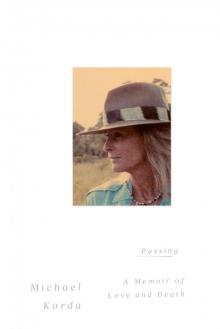 Passing
Passing Another Life
Another Life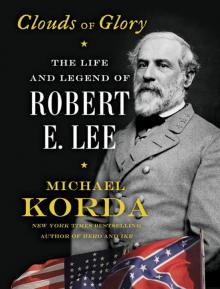 Clouds of Glory
Clouds of Glory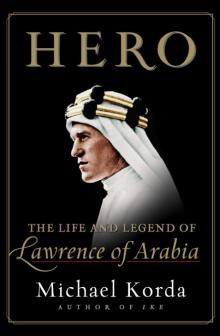 Hero: The Life and Legend of Lawrence of Arabia
Hero: The Life and Legend of Lawrence of Arabia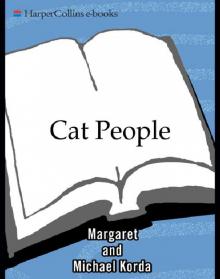 Cat People
Cat People Hero
Hero With Wings Like Eagles: A History of the Battle of Britain
With Wings Like Eagles: A History of the Battle of Britain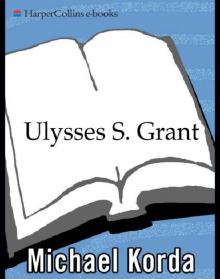 Ulysses S. Grant
Ulysses S. Grant